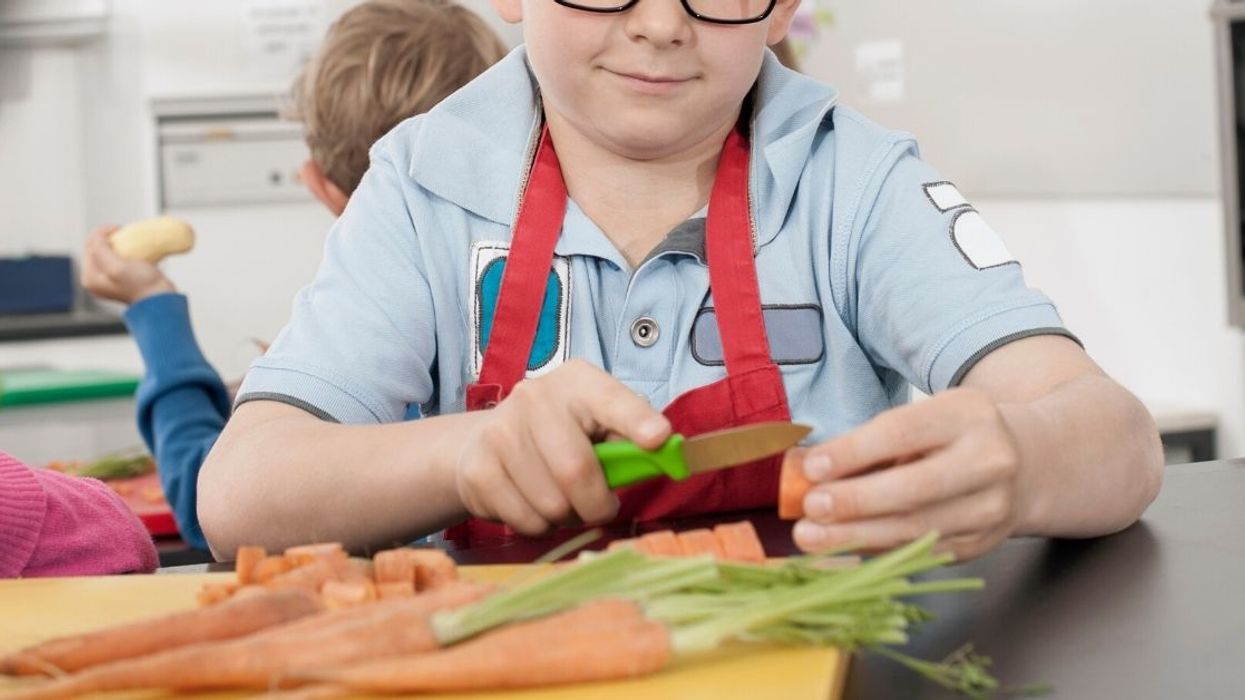When a student is too poor to bring something from home for an assignment, they should never be punished for it.
A mother was furious to discover her autistic son was sent to detention after failing to bring in ingredients for cooking class on short notice.
She took to Twitter expressing her frustration at the unfairness of poor people being viewed as negligent.
"One of my children has been told he will get a detention at school today."
"The reason? We can't afford the ingredients for cooking that the school only told him about yesterday."
She closed the tweet by asking if a "poverty detention" was fair.
The consensus was that poverty detention was unjust.
People equally outraged by the teacher joined the conversation and shared their own similar experiences of being unfairly punished.
A school governor shed some light on the fact that "good schools" are better prepared with backup supplies for those who cannot afford to supply their own.
There are simple solutions.
People remain shocked at the poor-shaming of the student.
The mother followed up the tweet by saying she was waiting to hear back from the school for a "more reasonable approach" and assured that no matter the outcome, her son will not be facing detention.
"UPDATE: I am waiting for a call from the school & hope they have a more reasonable approach. It is possible this problem relates to just one teacher."
"Thank you for all your support, he won't be doing the detention no matter what they say....but I'll keep you posted!"
According to the National Education Association (NEA), almost a quarter of American children come from poverty.
The Art of Education website encouraged teachers to be compassionate towards students who live in poverty and offered suggestions on how to help.
One concrete way was for teachers to hold the students to high expectations by empowering them to push themselves in pursuit of success and being a role model through shared goals and expectations.
Another solution was to build relationships with students and their families to establish a positive learning environment, as those living in poverty are commonly faced with transient lifestyles due to unstable housing and other conditions at home.
Compassion and incentive in helping impoverished students realize their potential are more effective than sending them to detention over a missing cooking ingredient.








 @bahamasholly/TikTok
@bahamasholly/TikTok @bahamasholly/TikTok
@bahamasholly/TikTok @bahamasholly/TikTok
@bahamasholly/TikTok @bahamasholly/TikTok
@bahamasholly/TikTok @bahamasholly/TikTok
@bahamasholly/TikTok @bahamasholly/TikTok
@bahamasholly/TikTok @bahamasholly/TikTok
@bahamasholly/TikTok @bahamasholly/TikTok
@bahamasholly/TikTok @bahamasholly/TikTok
@bahamasholly/TikTok @bahamasholly/TikTok
@bahamasholly/TikTok @bahamasholly/TikTok
@bahamasholly/TikTok @bahamasholly/TikTok
@bahamasholly/TikTok @bahamasholly/TikTok
@bahamasholly/TikTok @bahamasholly/TikTok
@bahamasholly/TikTok







